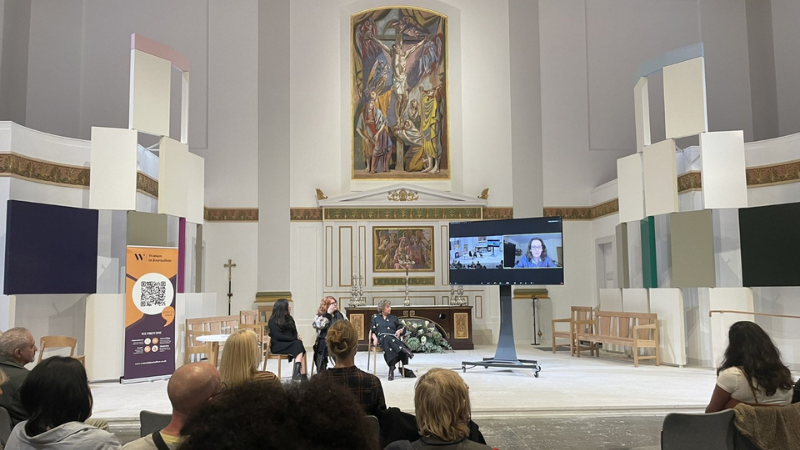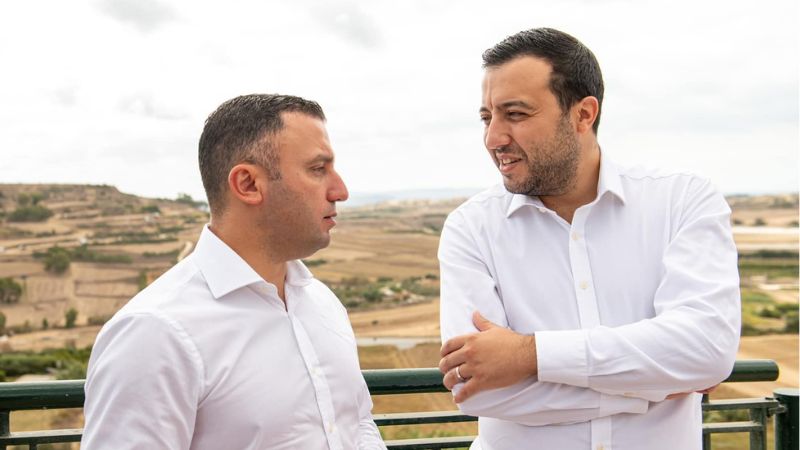On Monday 3 October, The Shift’s founder and Managing Editor Caroline Muscat joined speakers Rebecca Vincent, Patricia Devlin and Julie Posetti for the event ‘What women journalists face, to tell the truth’, which debated how bigotry and misogyny are weaponised to undermine their reporting.
The event, chaired by journalist and author Yasmin Alibhai Brown, marked the launch of the Daphne Festival and was introduced by Matthew Caruana Galizia, son of assassinated journalist Daphne Caruana Galizia and director of The Daphne Caruana Galizia Foundation.
Caruana Galizia outlined the many ways in which his mother was threatened and harassed, underscoring that the more revelatory her stories became, the more exposed and isolated she was and to what this isolation ultimately led.
Muscat noted that the fight for justice for Daphne Caruana Galizia remains difficult and that little has changed despite all that has happened over the last five years.
She further described how the six-month investigation of the secret Facebook groups that worked to dehumanise and isolate journalist Daphne Caruana Galizia was one of The Shift’s first projects – and how those findings were presented to the board of the public inquiry tasked with assessing the State’s role in her death.
The board concluded that these groups, still active today, played a significant role in isolating her and creating the culture of impunity that ultimately allowed those who wished to harm Caruana Galizia to feel that they could do so with the assurance that they would be protected.
Director of Operations and Campaigns at Reporters Without Borders (RSF) Rebecca Vincent described the alarming rise in the detention and death of women journalists around the world as well as the results of a survey conducted by RSF and published last year that found 73% of respondents had experienced gender-based violence online.
Julie Posetti, the global director of research at the International Center for Journalists (ICFJ), recounted how a UNESCO global survey catalogued “the chilling tide of abuse” inflicted on women journalists to silence them. This includes networked misogyny and gaslighting that threaten women journalists severely and disproportionately. Threats of sexual violence and murder are frequent and sometimes extended to their families.
She also noted that “there’s a reason we call what we see during our research ‘violence’,” adding that it is not simply a handful of hurtful comments that women journalists have to deal with but very specific threats. Moreover, 20% of the survey’s respondents believe that the real-world abuse they experience originated online.
Patricia Devlin, an award-winning journalist based in Ireland covering crime and reporting on families affected by the ongoing criminal activities of paramilitary groups for 14 years described her personal experiences. These included how in November 2020, she was forced into hiding after receiving threats to her life, including having her name graffitied on walls in Belfast alongside the crosshairs of a gun.
The speakers at the event concluded that just like Daphne Caruana Galizia, the women journalists were primarily targeted because of their work and stories and that being a woman, simply made it easier.
As an example of the repercussions that threats have on journalism, Delvin commented how none of her colleagues would go near any of the stories she was investigating.
The Daphne Festival will take place from 3 to 16 October in London, Malta and online to mark the fifth anniversary since the assassination of the Maltese journalist brutally killed by a car bomb on 16 October 2017.
The festival will bring together human rights and press freedom organisations as well as journalists, artists, activists, and campaigners from around the world to remember Daphne, celebrate the legacy of her work and highlight the ongoing campaign for justice.
It will also reflect on women journalists from across the globe who face threats because of their work, the story of how Daphne’s investigations lived on, the growing momentum for the introduction of anti-SLAPP legislation in the UK and Europe as well as the creative legacy and expression of the past five years, inspired by Daphne and her story.












